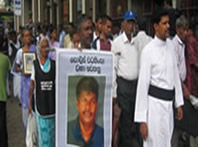UN Women, 20 June 2012
The Women Leaders’ Forum, a discussion between civil society, government and public sector representatives with UN heads of agencies, has broadened the dialogue on gender equality and sustainability at Rio +20, the United Nations Conference on Sustainability.
Organized by UN Women in collaboration with the Government of Brazil and other partners, the day-long event highlighted the central role of women in sustainable development, and the ways that robust policies can improve women’s lives by reducing poverty, advancing their economic opportunities, and protecting them from adverse health and environmental challenges. It also highlighted the inequalities that continue to slow global progress towards a green economy and a protected environment.
Delivering the opening and closing remarks, UN Women’s Executive Director Michelle Bachelet stressed the critical role of the women’s movement. “Twenty years ago, the Rio Declaration emphasized that women’s…


